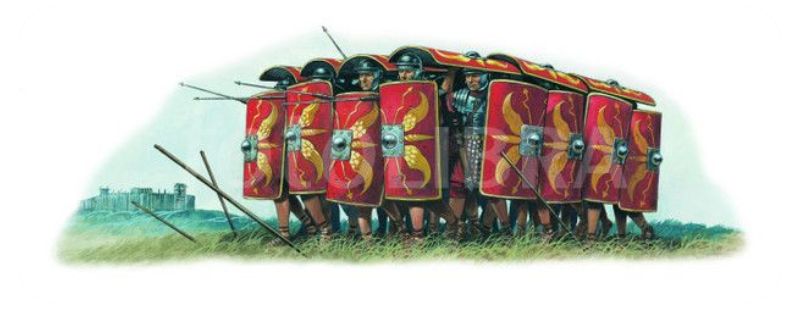Kai-Ling, Kate and I made cacio e pepe, a pasta dish with cheese and black pepper sauce, as a final Roman dinner. Having made cacio e pepe before, I had heard it often described as a quintessentially Roman dish, and I learned from a friend outside this class who had visited Italy that cacio e pepe is still very common in modern-day Rome. Though my frienf wasn’t able to try to the dish directly, he still loves cacio e pepe from his days in Rome, making it at home and searching it out on menus, and recalls it as one of the dishes that made him love pasta. Yet with only three ingredients (spaghetti, pecorino romano cheese, and black pepper), none of them ingredients only available in Europe after contact with the Americas, and all of them seemingly in line with other ancient Roman dishes I had heard of that seemed to mainly involve cheese and wheat products, I figured it might be possible that cacio e pepe (or something close to it) might have been made in Ancient Rome as well . I did further research into the dish’s origins, finding an informative BBC article by Emily Monaco (https://www.bbc.com/travel/article/20200512-cacio-e-pepe-italys-beloved-3-ingredient-pasta-dish) that described several possible origin stories for cacio e pepe, including legends that it was first made by shepherds in the Appenine mountains who made the dish on cold nights since dried pasta, sheep’s milk cheese, and dried pepper could all be easily acquired, transported, and kept for long periods of time and made into a simple yet flavorful and filling dish. Yet others argue that the dish most likely originated in the 1800’s as “is said to have arrived in Italy through the Venetian ports” and thus wouldn’t have been available to most Romans before the unification of Italy and widespread trade between cities across the peninsula.
Whatever its origins, I enjoyed making this dish- I used the Bon Appetit recipe here but was a bit disappointed by the results, as I’ve made cacio e pepe using other recipes that I thought had turned out more flavorful. The Bon Appetit recipe I used called for using butter in the sauce, which, according to the BBC article, would not be typical for most Roman recipes of the dish that rely solely on reserved starchy pasta water, fat from the shredded cheese, and careful mixing technique to produce a creamy sauce, and the use of cream or butter would be immediately sniffed out and condemned by most native Romans. The next time I make cacio e pepe, I’ll probably use a different recipe, bloom more pepper in the pan without butter and let it cook for longer to intensify the flavor, and add the starchy water more gradually before adding the pasta.
Bon Appetit Recipe: (https://www.bonappetit.com/recipe/cacio-e-pepe)
Ingredients
2 servingsKosher salt
6oz. pasta (such as egg tagliolini, bucatini, or spaghetti)
3Tbsp. unsalted butter, cubed, divided
1tsp. freshly cracked black pepper
¾cup finely grated Grana Padano or Parmesan
⅓cup finely grated Pecorino
Preparation
Step 1
Bring 3 quarts water to a boil in a 5-qt. pot. Season with salt; add pasta and cook, stirring occasionally, until about 2 minutes before tender. Drain, reserving ¾ cup pasta cooking water.
Step 2
Meanwhile, melt 2 Tbsp. butter in a Dutch oven or other large pot or skillet over medium heat. Add pepper and cook, swirling pan, until toasted, about 1 minute.
Step 3
Add ½ cup reserved pasta water to skillet and bring to a simmer. Add pasta and remaining butter. Reduce heat to low and add Grana Padano, stirring and tossing with tongs until melted. Remove pan from heat; add Pecorino, stirring and tossing until cheese melts, sauce coats the pasta, and pasta is al dente. (Add more pasta water if sauce seems dry.) Transfer pasta to warm bowls and serve.
BBC Recipe: (https://www.bbc.com/travel/article/20200512-cacio-e-pepe-italys-beloved-3-ingredient-pasta-dish)
Simone Zanoni’s Spaghetti Cacio e Pepe
Ingredients:
200g high-quality, artisanal spaghetti (Zanoni uses Neapolitan spaghetti)
4-7g wild black peppercorns (adjust to taste, depending on the assertiveness of the pepper)
160g Pecorino Romano, plus two pieces Pecorino rind
3l water seasoned with 15g of kosher salt
Instructions:
Prepare your mise en place (the French world for having all your ingredients prepped and measured) in advance. Crush the peppercorns with a mortar and pestle. (If you do not have a mortar and pestle, use the bottom of a saucepan to crush them on a chopping board.) Grate the Pecorino with a Microplane (grater).
Bring the water to a boil, season with the salt, and add the spaghetti. Stir gently at the beginning to keep the pasta from sticking to the bottom of the pot.
Meanwhile, toast ¾ of the pepper in a pan over low heat until aromatic, about 1 minute. Be careful not to burn the pepper. Remove the pan from the heat, and gently add 2 to 3 ladlefuls of starchy pasta water to the pepper. Bring to a boil. Add the cheese crusts and simmer.
When the spaghetti is half-cooked (after about six minutes), transfer it to the pan with the peppercorns and starchy pasta water, reserving the remaining cooking water. Transfer another ladleful of water to the pan. After a few more minutes, remove the Pecorino rinds, and place them in a non-stick pan over medium heat to toast on both sides. When nicely toasted, remove and set aside.
Meanwhile, continue cooking the spaghetti until two minutes before al dente (cooked “to the tooth” with a slight bite). Turn off the heat and allow the pasta to rest; there should be a bit of cooking water left in the pan.
After about a minute off the heat, begin adding the grated cheese to the pasta from above, shaking the pan all the while to coat evenly. Add cooking water as needed to help the sauce bind; the sauce will thicken as the pasta sets.
Serve the pasta in a warmed dish. Top with the remaining pepper and a little bit of freshly grated Pecorino. Finely slice the toasted Pecorino rinds and sprinkle on top.

